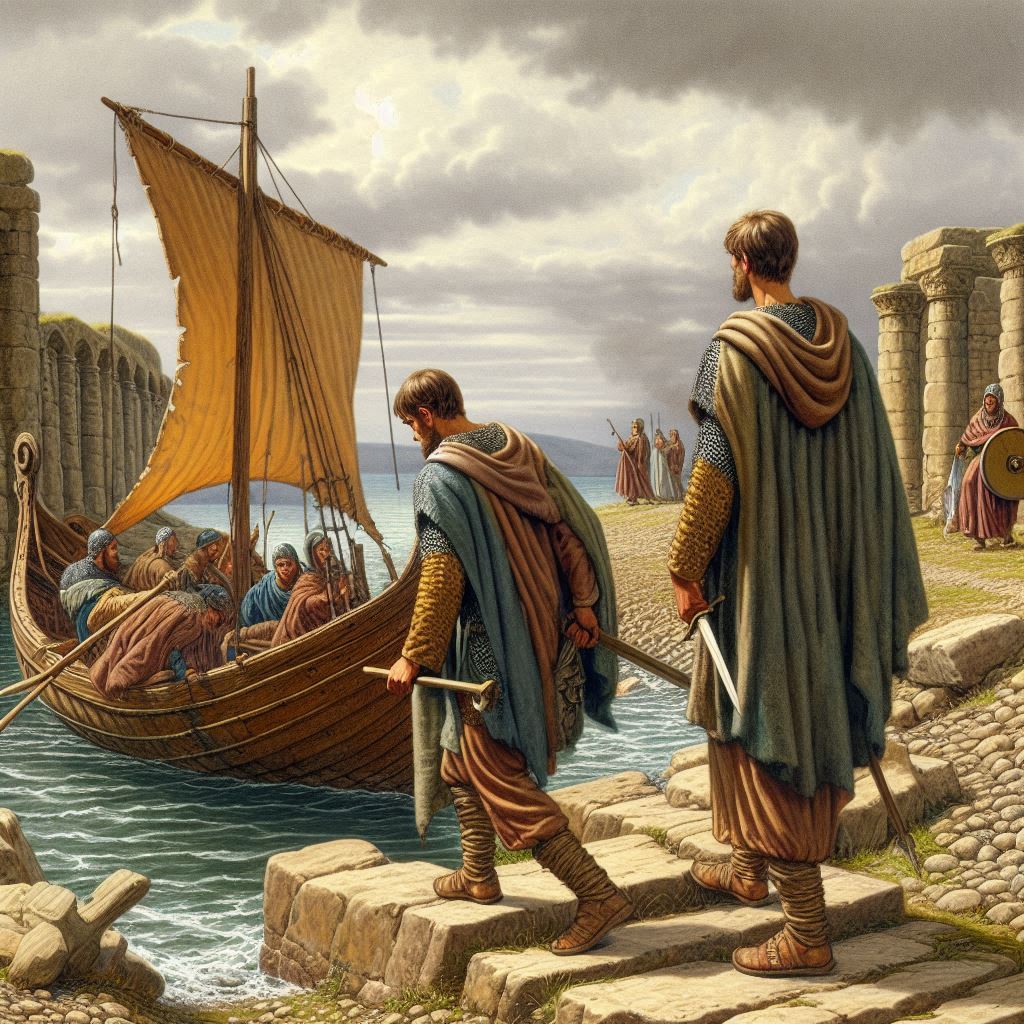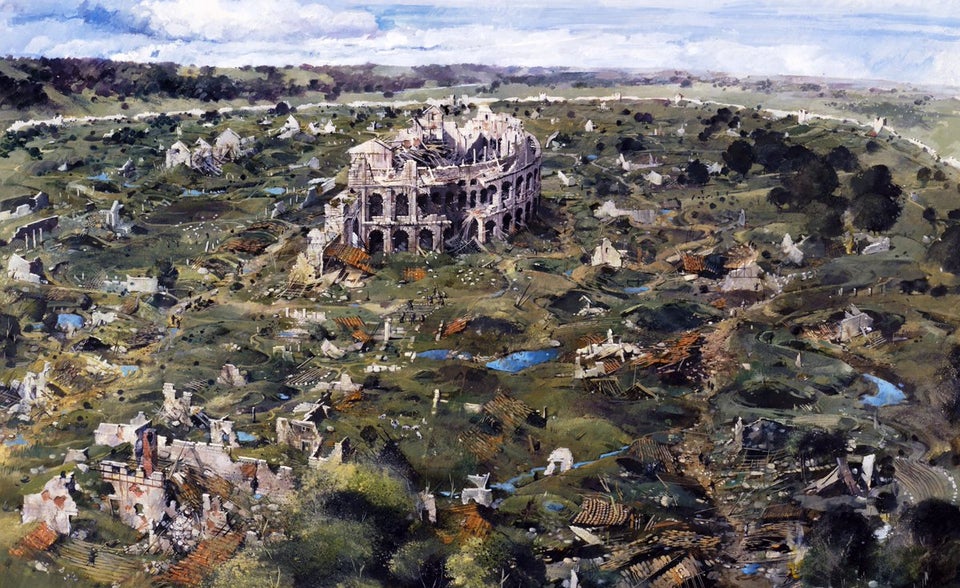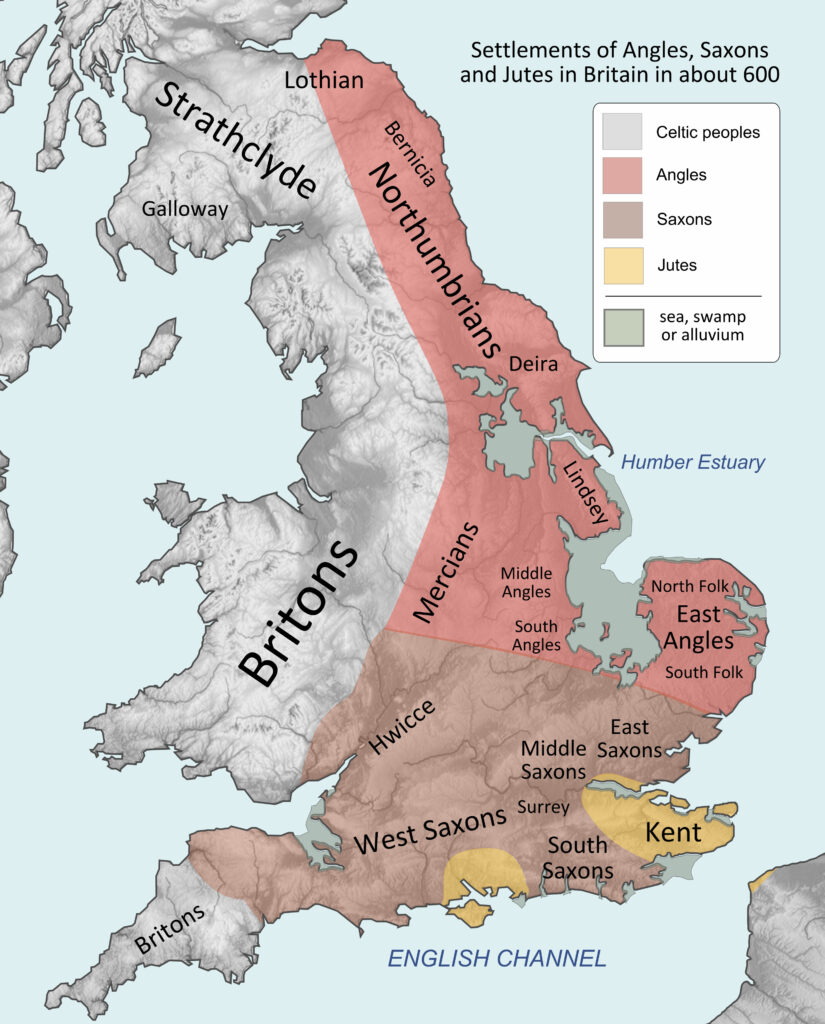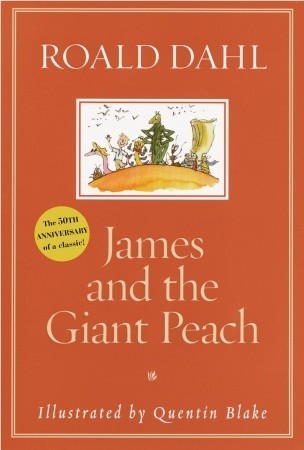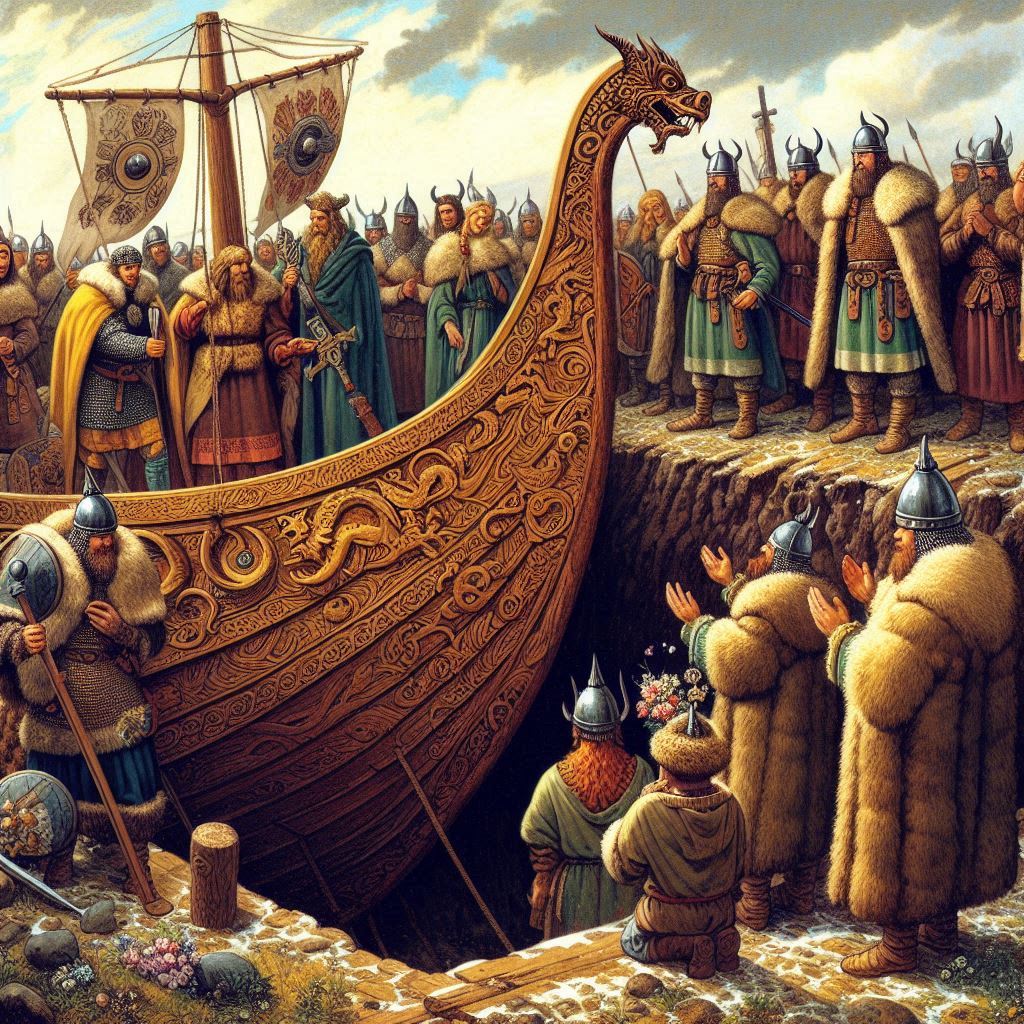
Did the Anglo-Saxons cross to Britain in ships with sails or did they row across the Channel?
It might seem obvious that they had masted ships – can you imagine rowing across the North Sea? – but the problem remains that the ships we have excavated dating from before the Viking Age are all mast less. The ship buried at Sutton Hoo had rotted away but its ghost marks left in the soil told of a ship 89 feet (27 metres) long, tapering to high posts at prow and stern. It would have been a magnificent vessel, built clinker fashion (which means the hull planks overlap each other) but with a shallow keel that did not descend significantly lower than the hull. There was no sign of a mast step in the impression left by the keel in the sandy soil. There were, however, distinctive oar rests, indicating that the boat was rowed up the River Deben.
Other boats dating from before the Viking Age, such as the boat excavated from the Nydam bog in Denmark and dated by dendrochronology to between AD 310 and AD 320, are also clinker built and oared.
On the other hand, the Romans had sails on their boats and it seems strange that the Germanic peoples, who were in contact with the Romans through trade and war, would have ignored the fairly obvious benefits of sails for their own vessels. So the argument runs on how strongly we weigh absence of evidence as evidence of absence.
